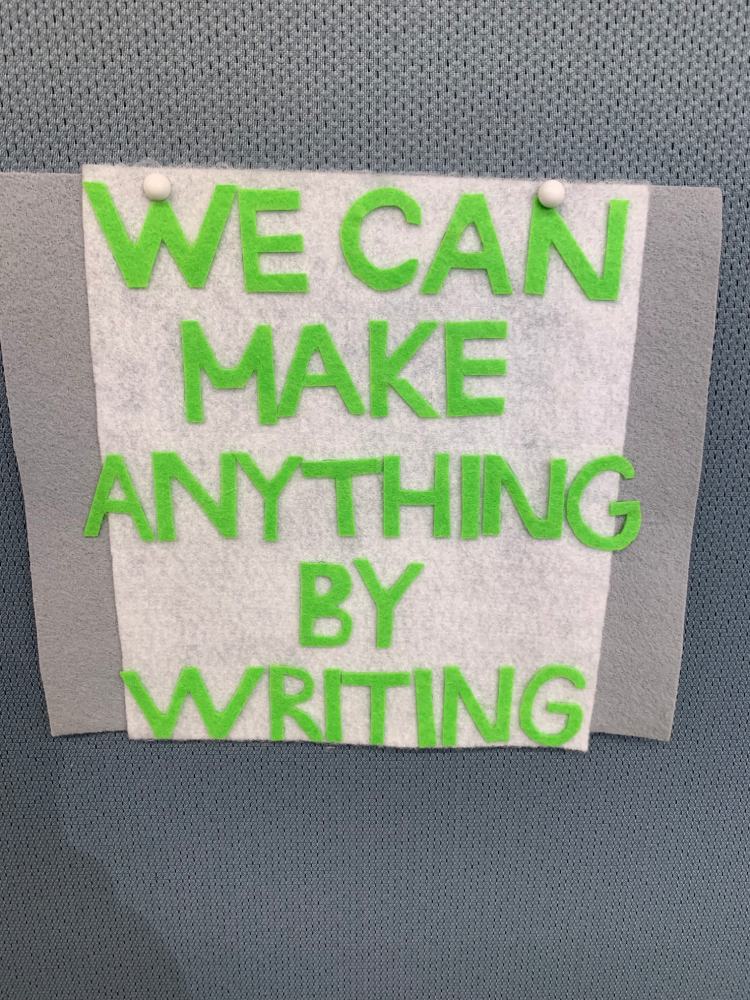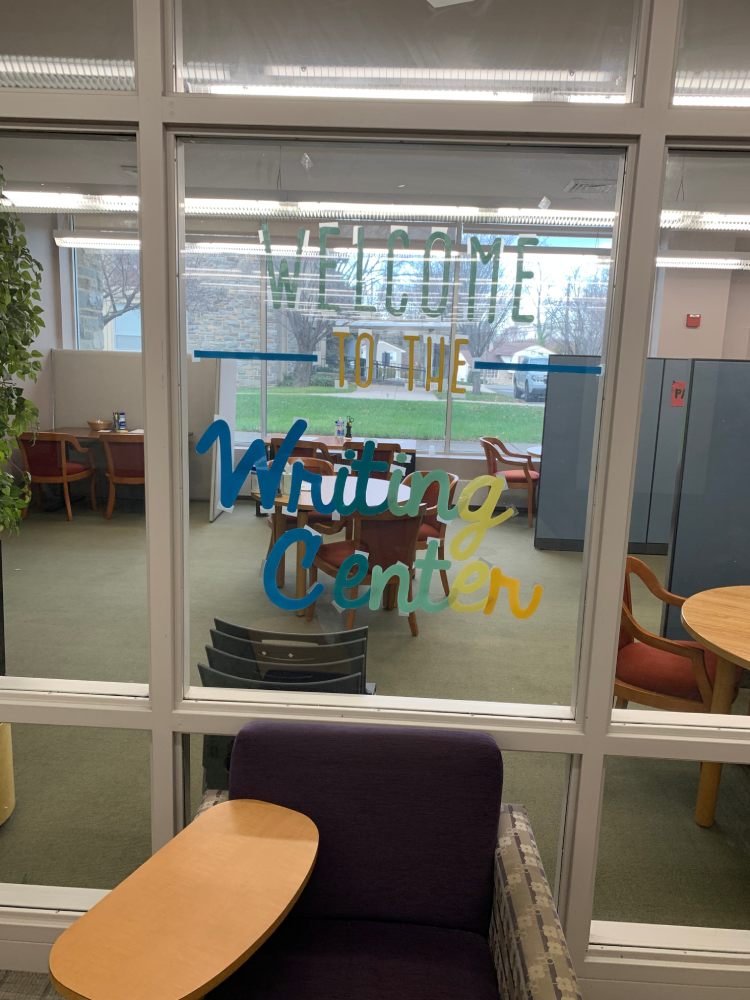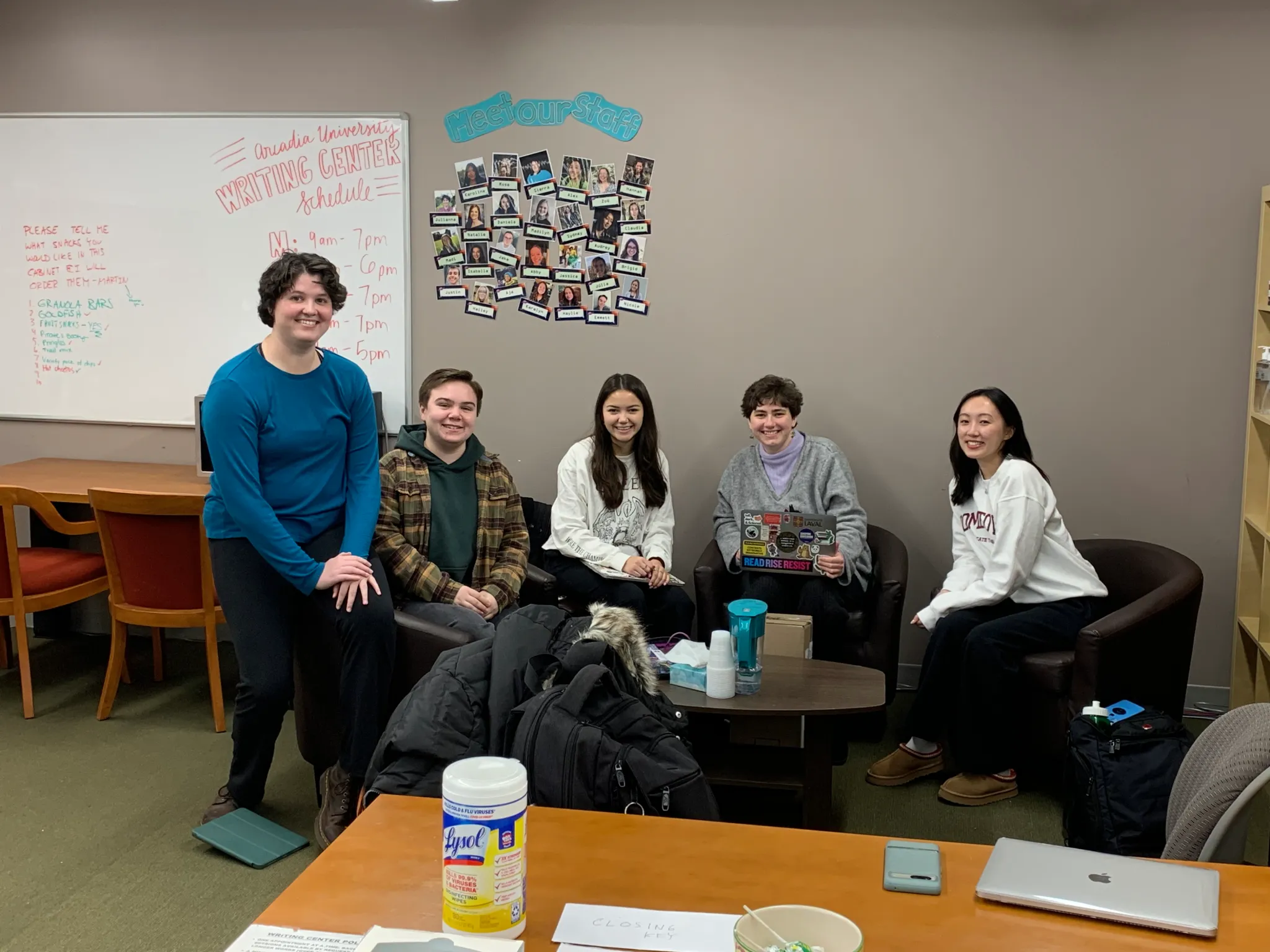Student-Centered Writing Center Helps Unlock Potential
I’ve always enjoyed writing. It’s the reason why I took an elective class analyzing 20th century literature in high school, why I wrote song reviews weekly for my Honors Project as a junior in college, and why I decided to be a student blogger in my Senior year. Through my experience, I’ve learned that there is always room to grow as a writer. So when I was offered a position at Arcadia’s Writing Center (WC) last spring, I accepted the position.
For those who may not know, the WC is located on the ground level of Landman Library. It’s a space that is open from 9 to 5 Monday through Friday. However, the center also provides online and asynchronous meetings when the library is closed. During these hours, a number of consultants are available to work with writers in all parts of the writing process. I have worked with students who came in with a complete paper, but I’ve also helped students who hadn’t even started writing to create an outline or generate ideas. Our goal is, of course, to provide students the resources to thrive, but the overarching idea of helping students understand their potential as writers is present in every meeting.

There’s a misconception that “the writing can be better,” as opposed to “the writer can be better.” When I applied for the position as a WC consultant, and the then-director informed me that the goal of the center was to “make better writers,” I was immediately interested. Writing can be easily changed; it can be critiqued, proofread, and edited until it is as close to the instructor’s idea of “perfect” as possible. Changing a writer, however, is a way more complicated process, and one challenge the center aims to tackle.
At the start of each semester, consultants attend training that lasts several hours. Consultants, both new and experienced, learn about the center, its practices, read some writing samples, and meet one another. One of the activities we have done at both trainings I have attended is a mock consultation. During this time, two consultants role play a meeting with a consultee. We try to simulate what a “writer-focused” meeting would look like. For example, if the consultant sees a pattern of similar grammatical mistakes, instead of just correcting them, they might practice the correct grammar rules with the student so that they not only correct the mistake in that paper, but avert it in future work as well.
Another goal of writer-focused meetings is for the consultant to act as a facilitator to help the student figure out what their paper needs. In fact, consultants are told that the consultee should, on average, be speaking almost twice the amount the consultant does during consultations. For example, many writers come into the center to brainstorm ideas with a consultant. Instead of the consultant just throwing ideas at a consultee until something sticks, we find ways to challenge the consultee. A lot of times, I will ask students questions about their paper, their assignment sheet, or their rubric until they have that “aha!” moment where they realize what they’ve been missing, and then I would encourage them to begin writing based on that revelation.

I mentioned earlier that I believe there is always room to grow as a writer. The center not only allows its consultees to thrive and better themselves as writers, but also it helps consultants continue to grow. In working with a number of students in different majors and classes, with different writing styles and journeys, all in different parts of the writing process, I have seen firsthand how everybody has a unique relationship with writing, a relationship that we all use to create and direct the writing we do. I have become more aware of my writing style and process as a result of working with others, which, in turn, allows me to better assist the students who come to the center.
In the same way we all have room to grow as writers, the center itself has room to develop to meet the needs of the students. As part of working at the WC, each consultant is expected to enroll in EN311 and EN312. In EN311, we read and discuss research regarding Writing Center practices and how we can bring that research to our own meetings. In EN312 – Research in the Writing Center – the small group of students picks one challenge the center faces and performs their own group research to find a solution. This year, students in EN312, including me, are researching how the center can better support graduate students since the majority of the consultants have very little experience with grad work. Currently, we are creating surveys and reading Writing Center publications to alleviate the stresses both consultants and grad students may have when entering the center. So, when I think about what the WC does for students, I find myself saying that it exists to fully support students, but it is also a space that will continue to develop as its consultants and consultees work to grow into more confident writers.



